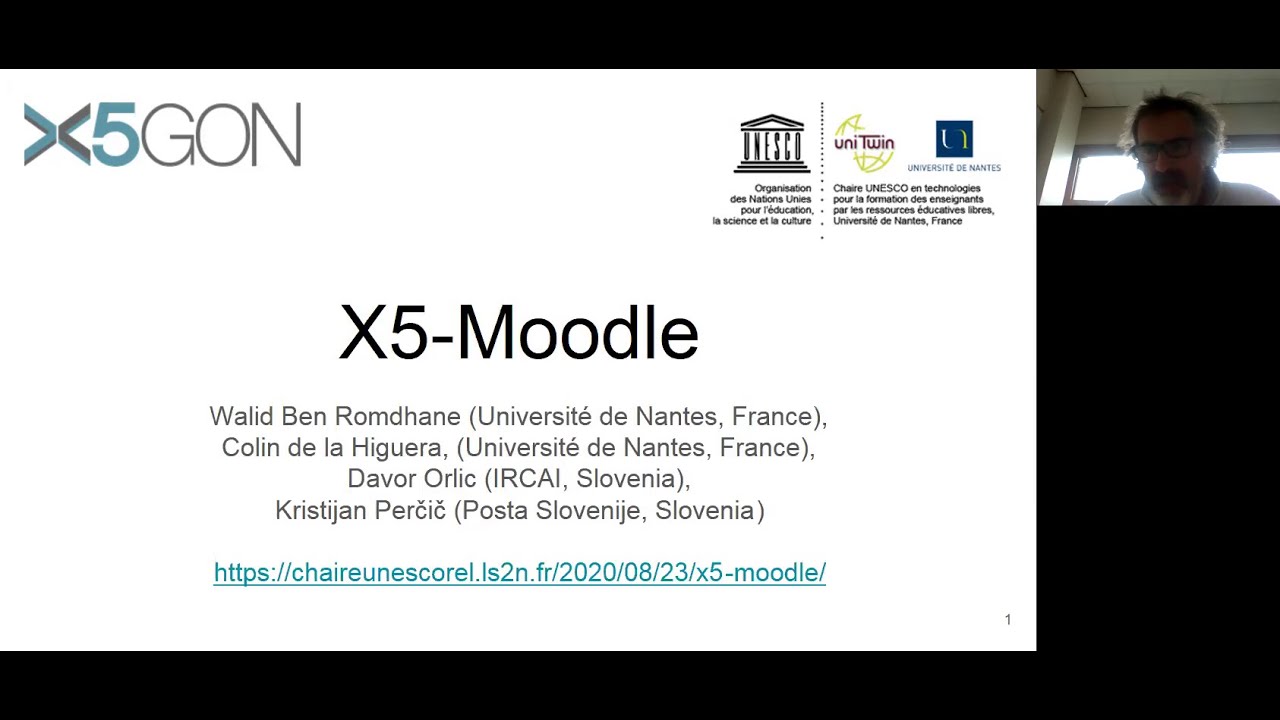Authors: Walid Ben Romdhane, Colin de la Higuera, Davor Orlic, Kristijan Percic
Institutions: Université de Nantes, IRCAI, JSI, K4A, Posta Slovenia
Countries: France, Slovenia
Topic: Technologies for Open Education
Sector: Higher Education
UNESCO Area of Focus: Building capacity
Session Format: Presentation
Abstract
Project X5-GON is a European project (2017-2020) in which were developed tools allowing to access, transcribe, translate, index, search for and recommend OER from multiple languages, topics, repositories. In order to better use these features a Moodle Plug-in has been produced. When this plug-in is installed, a teacher can benefit from an environment in which he can give access to his classroom to a search engine which will adapt to the classroom’s preferences, recommend new resources based on the classroom’s positive feedbacks and a playlist designed by the teacher with his personal choice of OER. In a nutshell, Open Educational Resource Repositories are found over the web, identified as such and crawled. The ingestion process passes the OER to powerful transcription and translation tools. The result is raw text: the current state of technology allows this text to be surprisingly clean, with an acceptable number of errors. This text can then be indexed. And a number of features are extracted through the use of models built by Machine Learning algorithms: Keywords and topics are obtained, the difficulty of the text is evaluated, some form of precedence is computed. These semantic features can now be used for more complex tasks. In the tool we propose, a teacher can access the course she is teaching and add the new X5-GON activity. This activity comes in three variants: X5-Discovery, X5-Recommend and X5-Playlist. In order to seed the system the teacher will use X5-discovery herself and enter some keywords she would use to find new material related to the course.Once the X5-GON activity is installed, a student from that class can search for resources using one of 3 settings.
With X5-Discovery, the student will search for new OER. He will be able to see the most popular searches made by his fellow students. These most popular searches for the course are of course updated with his own searches.
With X5-Recommend, the student will get a recommendation built as a linear combination of the recommendations made by the X5-GON tool and the more popular OER viewed by the classroom. Again, the recommendation is systematically updated as the student explores but also as the classroom shifts its attention to new OER.
With X5-Playlist the student can access the different OER previously selected by the teacher. The number of accesses is registered giving teachers an important information concerning the extra material viewed by her students.
The first key result is that students are not always that good at using internet navigating and search tools. They get easily lost, swamped by the information, incurable of deciding if a new document is of value. Through the AI, documents accessed and consumed by the rest of the class are recommended in priority.
A second key idea is that instead of picking user data, the system will collect usage data.
We believe the ethical consequences are tremendous.
Keywords
Open Educational Resources, Moodle, Artificial Intelligence
